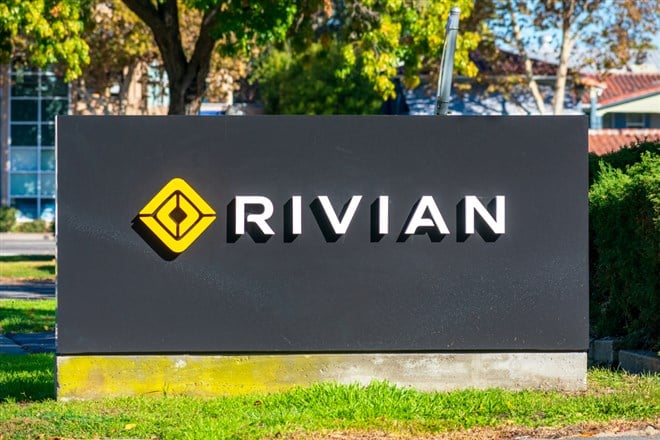
At least a dozen Wall Street analysts are offering a 12-month price forecast for Rivian Automotive Inc (NASDAQ: RIVN) at a median target of $52 with an estimated range from $24 to $108. This median price estimate represents a significant 98.85 percent increase from the previously reported price estimate of $26.15.
All of this comes after Rivian posted a net fourth-quarter loss of $2.46 billion. This is equivalent to $4.83 per share. One year ago, Rivian posted a loss of only $353 million, or $3.50 per share.
While the EV maker is struggling with a handful of complications, the current analyst consensus gives them a [moderate] BUY rating. This is rating has held strong through all of the month of May.
Rivian: A Quick Timeline
Rivian Automotive Inc rapidly grew in popularity as they started taking reservations in early 2019 for the launch of their first line of electric vehicles. Backed by Amazon.com, Inc, this EV startup promised customers an opportunity to be a part of a kind of paradigm shift in the automobile market that many other carmakers simply are not offering.
Unfortunately, many of these early adopters have grown frustrated by one delay after another: even as those who placed later reservations are seeing their orders filled while those who placed their orders first are still waiting.
Just a few weeks ago, in late April, Rivian Automotive Inc reported its plan to change its vehicle production sequence. The new schedule would prioritize orders with specific interior and exterior chassis colors and also wheel options. Basically, they wanted to focus on certain customization options before fulfilling the bulk orders.
Automakers Hit Hard By Supply Chain Complications
Of course, global supply-chain issues have direly affected automakers. From a semiconductor shortage to skyrocketing raw-material costs, fresh tech startups like Rivian have struggled to gain momentum out of the gate. As a matter of fact, large investors in Rivian—which includes Tiger Global Management and even Ford Motor Co—have offloaded their Rivian stock as soon as the post-IPO lockup period hit its expiration.
The EV manufacturer said it has consistently monitored the capital markets and had anticipated an increasingly more difficult manufacturing and distribution environment. With $16 billion at IPO, the startup boasts quite a lot more cash than small EV startups like Lordstown Motors, Inc and Canoo, Inc. That would be a great place to start but this capital has dwindled quickly as Rivian spent roughly $1.2 million per vehicle that it delivered in the first quarter alone. They estimate spending a total of $7 billion this year, in cash, to fulfill the rest of the orders.
Rivian Will Likely Reduce Production Targets
Although Rivian told investors they had enough liquidity to launch operations of a second US plant in 2025, at a price of $5 billion, investor (and early customer) patience may not be buying it. Many smaller, independent automakers, like Rivian, have long believed that the worst of the semi-conductor supply shortage has passed. The data, on the other hand, shows that low inventories could remain until at least the middle of next year. Furthermore, they hinted that the supply-chain issues could cut their planned production volume down to a mere 25,000 vehicles.
That said, Rivian shares fell 8 percent recently after the Irvine, CA-based startup reduced production outlook by 50 percent due to the rising costs. This brought the price down to $37.82, nearly half of their $78 IPO price. So far, the stock has fallen by more than 60 percent this year.
Rivian Raises Prices Significantly
Rivian has not detailed when they expect to manufacture their vehicles at a profit margin. That said, a recent price increase has boosted the base sticker price for its current pickup model from $67,500 to $79,500. The goal for this is to offset the higher cost for raw materials and improve overall economics.
This price increase will apply to orders placed after March 1, 2022. In a March 3 email to customers, Rivian also intimated a plan to launch a more basic R1T model at the lower $67,500 price point. And they expect to be able to deliver these vehicles by 2024.
Unfortunately, competitors in this field argue that making a profit at even their lowest available price point is not going to be easy. It has been estimated that Rivian spends approximately $22,000 on its entry-level battery and then around an additional $20,000 on drive trains. This implies that they won't really turn a profit without a minimum sticker price of $95,000.
Companies in This Article: